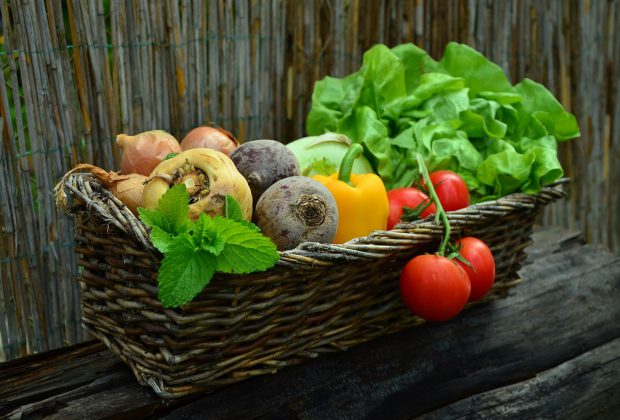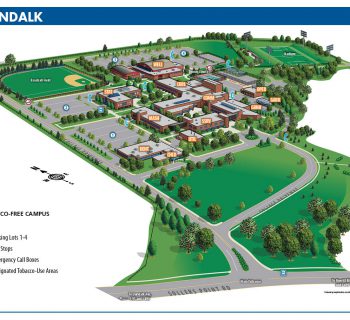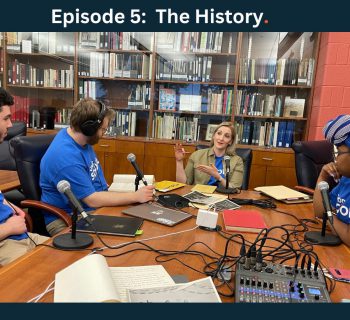Rosia L Frazier
The sun is shining at CCBC Essex as students mill about the campus or fast step-it to classes. Academic achievement is crucial to most. Students are representing their cultures, their families, their corporations. Some students just “need to pass” while others are more driven. Food insecurity will derail either of those goals.
According to Feeding America, 34 million people are food insecure. That statistic spirals out of control on community college campuses where 1 in 3 students are experiencing food insecurity according to the National Center on Safe Supportive Learning Environments. Hunger distracts, hunger pains, hunger persists. Focusing on lectures or keeping up in labs becomes impossible. Worrying about money and the inability to buy food becomes the priority. Worse, hunger is stigmatized.
Crissy Hoffman knows that campus hunger is unacceptable. Bubbly, warm-hearted, smiling, and wearing her passion on her sweater’s sleeve, Hoffman speaks about eradicating food insecurity on campus by filling the needs of hungry students and their families. Food pantries and the newly piloted food lockers are the solution to campus hunger, for now.
Hoffman is the Assistant Director of Student Engagement on the Essex and Dundalk campuses. Since 2010, food pantries have served students across each of the three main campuses.
In November 2010, The Dundalk campus piloted a two-tiered cart which students rolled around campus. It was a valiant effort but needed more structure. Fall 2012 saw Dundalk open its first pantry. Catonsville followed in Fall 2014, and Essex followed suit in May 2015. In just 5 years, the pantry grew and expanded from a pushcart to 3 pantries. Fall 2023 saw the installation of 90 food lockers across three campuses.
Sitting in her Essex Campus office, Hoffman explained that the pantries are great, but there is no anonymity. She is not satisfied with just handing out food. She wants the student to feel free from stares, judgment, or stigma. The Student Engagement Office learned this model from another college. Students can reserve lockers online and retrieve food whenever campuses are open. They only need a reservation that generates a code to open the locker. Students can reserve a locker every week and approximately 10 items will be loaded into it. In addition, the food pantry serves most hours campus is in operation, and students can receive 5 items per day. No questions are asked, they just show their current CCBC identification.
For a hungry student, this is a dream deal. A student can receive up to 25 pantry items every week plus their 10 food locker items. Hoffman insists upon growing the program. “When you’re hungry it affects your whole body…your mind…you aren’t able to perform in your classes.” She continues, “We also think about students with families, and we wanted to address both…”
Hoffman knows that food insecurity is not going anywhere. “All the research looks at school age children including high school, but college kids have to be a part of that, too.”
Hoffman wants to see Student Engagement partner with grocery stores like Whole Foods or Mom’s Organic Market to offer healthier versions of college favorites. College and Community Outreach Services has already partnered with Hungry Harvest. They are on the campuses one day per week. Hoffman sees the need to create an educational initiative where students learn how to use certain foods from the farm fresh boxes. Sometimes students are mystified by squash and brussels sprouts. The Community Garden partnership already provides cooking demonstrations with how to use what is in the garden. Six pounds of basil does not sound like a lot, but it will stump most new cooks.
Funding the food pantry and food lockers is another constant consideration. Hoffman asks, “…what can we do to address the needs that are still there?” Providing clothing someday is an ambitious idea. She thinks they can definitely provide more fresh foods rather than heavily processed meals.
The Institutional Advancement Office raised $5000 for the pantries and lockers. Hoffman is thinking about food kits for students with limited time and limited kitchen expertise. These goals require funding and so far, their's has been entirely grassroots donations.
Being highlighted on WBAL at The Catonsville Campus made Hoffman very happy. “…The story was awesome and drew attention to food insecurity on (our) campuses,” she said. “That was great exposure to the social problem.”
The pantries and lockers seem to be working. During the first two weeks of Fall 2023, 298 students received services. There were 1905 items distributed the first 10 days of classes. Hoffman says, “Once we feel more comfortable (with our newly piloted program) students will, too.”
Students receive their choice(s) of snacks, instant meals or hygiene items. Special dietary restrictions are another goal. Halal and Kosher are standard. Someday, gluten-free, low glycemic impact, or vegan will be available. Hoffman hopes to keep the pantry and lockers at least through Spring Semester.
Jordan Scott, first semester political science major, thinks the program is wonderful and loves working in the Student Engagement office. “It’s not hard. Students show me their ID and I unlock the pantry for them. They can have up to 5 items per day every day,” she says. “The lockers are great.... I might load them, but I don’t see the students. It’s anonymous,” she clarifies. “I see every type of student (for the pantry). They keep me busy!”
Scott is kept busy by food insecure students and hungry students needing sustenance. There are still many growing pains like a Sign-Up Genius page and a Microsoft form that seem to not know one another in cyberspace. Student Engagement took that feedback and created a tutorial. Feedback is valuable when piloting a new program. “Students tell us they are grateful and thankful for the “24/7” access,” Hoffman said. She knows there is much more work to do to fulfill the needs of students at three campuses. She continues, “We can take the statistics, the info, and the feedback and brainstorm more options and find more funding.”
The Office of Student Life is working to ensure that all students have something to eat daily. If students are on one of the main campuses, they can eat Monday through Friday from the pantry. They can also reserve a locker online, receive a code to unlock it, and have access to more food. It is a humble beginning to an ambitious ideal.
In the richest country in the world, some students still live in food deserts. Students are food insecure. Students are hungry. Crissy Hoffman says not on her watch.














